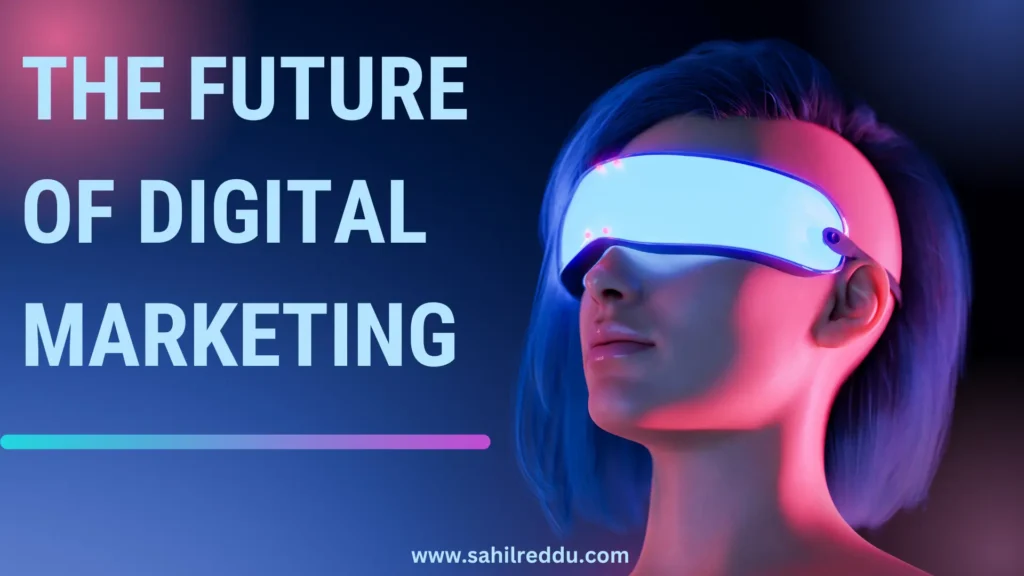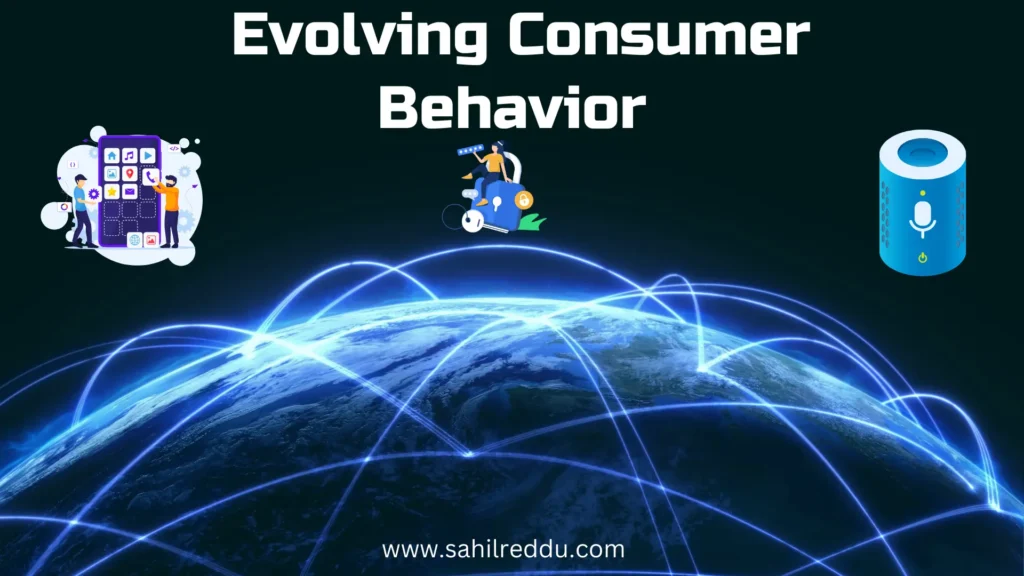
The Future of Digital Marketing: Trends, Innovations, and Predictions
Digital marketing is constantly evolving, with new technologies and strategies emerging regularly. Currently, businesses leverage social media, SEO, content marketing, and data analytics to reach and engage customers. However, to stay competitive, it’s crucial to keep an eye on future trends.One major trend is the rise of artificial intelligence (AI) and machine learning, which are transforming how marketers personalize content and predict consumer behavior. For instance, AI-powered tools can analyze vast amounts of data to deliver personalized experiences, boosting customer satisfaction and conversion rates.
Augmented Reality (AR) and Virtual Reality (VR) are also set to revolutionize customer experiences by creating immersive and interactive marketing campaigns. As mobile-first interactions continue to dominate, optimizing for mobile and voice search will become even more critical.Content marketing will see a shift towards interactive and short-form videos, while micro-influencers will play a larger role in brand promotion. Additionally, the demand for data privacy and security is increasing, pushing marketers to adopt ethical data practices.
By staying updated with these trends, businesses can adapt their strategies to meet evolving consumer needs and maintain a competitive edge in the digital landscape. Embracing these innovations will shape the future of digital marketing, ensuring long-term success.
Emerging Technologies
Artificial Intelligence and Machine Learning
Artificial Intelligence (AI) and Machine Learning (ML) are transforming digital marketing. AI analyzes vast amounts of data, allowing marketers to personalize content and predict consumer behavior more accurately. This leads to improved customer experiences and higher conversion rates. ML algorithms help in automating repetitive tasks, such as email marketing and ad targeting, making campaigns more efficient. By using AI and ML, businesses can gain deeper insights into customer preferences, optimize their marketing strategies, and stay ahead of the competition in the ever-evolving digital landscape.
Augmented Reality (AR) and Virtual Reality (VR)
Augmented Reality (AR) and Virtual Reality (VR) are revolutionizing digital marketing by offering enhanced customer experiences. AR allows customers to visualize products in their own space through their smartphones, making online shopping more interactive and informed. VR creates immersive environments where users can engage with brands in entirely new ways, such as virtual tours or interactive ads. These technologies enable innovative marketing campaigns that captivate audiences and drive engagement. As AR and VR continue to evolve, they will play a crucial role in creating memorable and effective marketing strategies.
Evolving Consumer Behavior

Consumer behavior is rapidly evolving, and understanding these changes is crucial for effective digital marketing. One significant shift is towards mobile-first interactions. With more people using smartphones for browsing and shopping, optimizing websites and content for mobile devices is essential.Another trend is the rise of voice search and smart speakers. Consumers are increasingly using voice commands to search for information and make purchases. Marketers need to adapt by focusing on voice SEO and creating content that answers common voice queries.
Additionally, there is an increased demand for privacy and data security. Consumers are more aware of how their data is used and expect businesses to protect their personal information. Implementing transparent data practices and complying with privacy regulations can build trust and loyalty.
By staying attuned to these behavioral shifts, businesses can better meet consumer needs and enhance their marketing strategies.
Content Marketing and Social Media
Content marketing and social media are constantly evolving, and staying ahead of trends is vital for success. The future of content is interactive and immersive. Interactive content, like quizzes and polls, engages users more deeply, while immersive experiences, such as 360-degree videos and augmented reality (AR), provide memorable ways to connect with audiences.Micro-influencers and community-driven marketing are becoming more significant. Micro-influencers, with their smaller but highly engaged followings, offer authentic connections with niche audiences. They can be more effective and affordable than macro-influencers. Community-driven marketing focuses on building and nurturing loyal brand communities, fostering stronger relationships and advocacy.
Short-form video content is dominating social media. Platforms like TikTok and Instagram Reels have popularized brief, engaging videos that capture attention quickly. Brands are leveraging this trend to create compelling, shareable content that resonates with their audiences.By embracing these trends, businesses can create more engaging and effective content marketing strategies. Interactive and immersive content will capture attention, micro-influencers and community-driven marketing will build trust and loyalty, and short-form video content will keep brands relevant in the fast-paced world of social media.
Data-Driven Marketing
Importance of big data and analytics
Big data and analytics are crucial in data-driven marketing. They provide deep insights into consumer behavior, preferences, and trends, allowing businesses to make informed decisions. By analyzing large datasets, marketers can identify patterns and optimize their strategies for better targeting and personalization. This leads to more effective campaigns, higher engagement, and improved ROI, making big data and analytics essential tools in modern marketing.
Real-time data and agile marketing strategies
Real-time data is crucial in data-driven marketing as it provides immediate insights into consumer behavior and trends. This allows businesses to quickly adjust their strategies, ensuring they remain relevant and effective. Agile marketing strategies, powered by real-time data, enable swift decision-making and adaptation, leading to more accurate targeting, improved customer engagement, and better overall marketing performance.
Automation and Efficiency
Marketing automation tools and platforms
Marketing automation tools and platforms streamline marketing efforts by automating repetitive tasks such as email campaigns, social media posts, and customer segmentation. These tools increase efficiency, save time, and ensure consistency in marketing activities. By using automation, businesses can focus on strategy and creativity, while maintaining personalized communication with customers, ultimately improving engagement and driving better results.
Chatbots and customer service automation
Chatbots and customer service automation enhance efficiency by providing instant support to customers. They handle common queries, freeing up human agents for complex issues. Chatbots are available 24/7, ensuring continuous customer assistance. Automation streamlines processes, reduces response times, and improves overall service quality, leading to increased customer satisfaction and operational efficiency.
Streamlining marketing operations
Streamlining marketing operations through automation enhances efficiency by reducing manual tasks and speeding up processes. Automated tools can handle tasks like email campaigns, social media posting, and customer segmentation. This allows marketers to focus on strategy and creativity, improving productivity and campaign effectiveness. Automation ensures consistent execution, timely delivery, and accurate data tracking, ultimately leading to better marketing results and resource management
FAQs
What is the Future of Digital Marketing in India?
The future of digital marketing in India is bright, with increasing internet penetration and smartphone usage driving growth. Emerging technologies like AI, AR, and VR will enhance personalized and immersive experiences. Additionally, a focus on data privacy and regional language content will shape marketing strategies.
What is the role of AI in the future of digital marketing?
AI will revolutionize digital marketing by enabling personalized experiences at scale, optimizing ad targeting, and improving customer insights through predictive analytics. It will automate routine tasks, enhance content creation, and provide real-time data analysis, making marketing strategies more effective and efficient.
Future of Digital Marketing Career?
The future of a digital marketing career is promising, with high demand for skilled professionals. As businesses increasingly rely on digital strategies, roles in SEO, content creation, social media, and data analytics will expand. Continuous learning and adaptability to new technologies will be key to success.
About Author
Sahil Reddu
Am Dedicated Digital Marketer based in Gurugram.
With a passion for Digital Strategies and I specialize in Digital Marketing and Sharing industry insights through blogs.
Want to Know more About digital Marketing https://sahilreddu.com/hire-me/